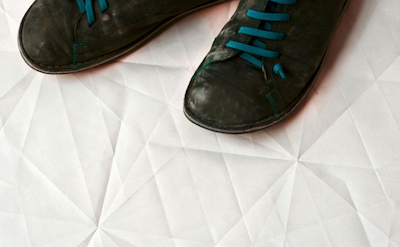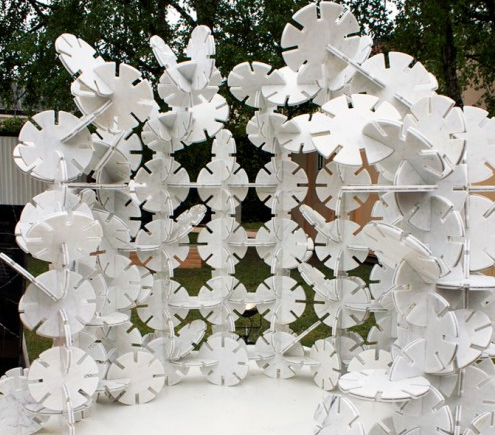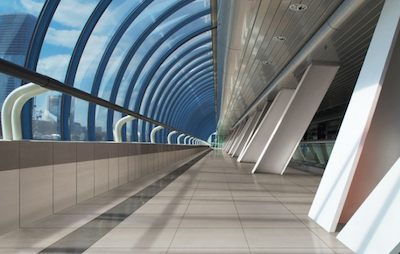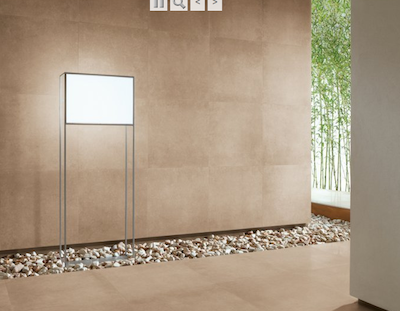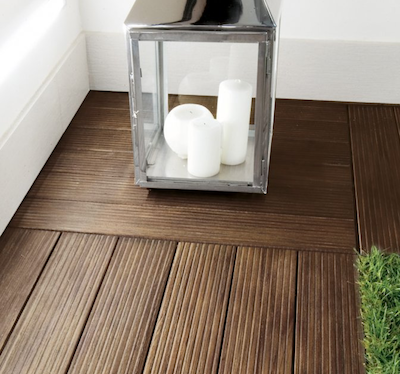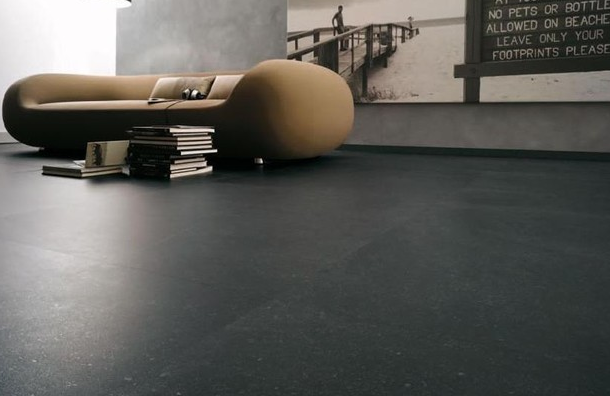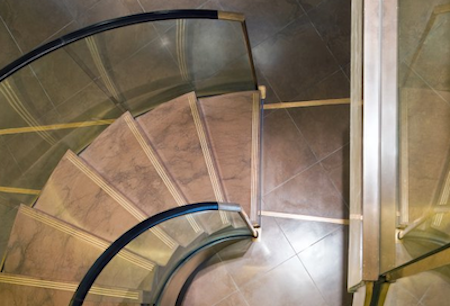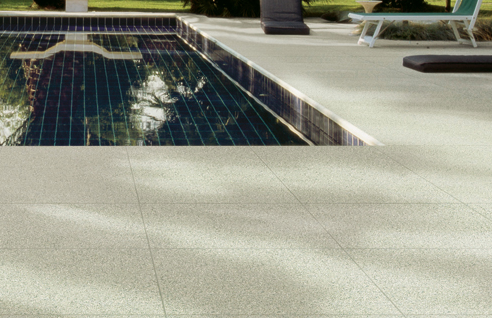Tiles are hard wearing, practical, versatile and with new technology can achieve many finishes and mimic textures and properties of other surfaces. We have compiled a brief summary and trend report on tiles to help you better understand the right tile for you.
Stunning ‘Folded’ Tiles by Raw Edges
Trends
The most popular trend we’re seeing at the moment is the size of the tile; big format, the bigger the better, with less grout. The feature becomes the surface itself, not the seams. The beauty comes in the surface of the tile and we’re seeing a lot of textures as opposed to patterns. Paper, Fabric, Wood Grain and Concrete – all back to basics. Patterns tend to be geometric which may be drawn from the 60’s trend which is still prevalent. Grey is still a key colour, with hints of cool blue tones coming through. Porcelain tiles remain the most practical and hardwearing as they are easy to clean and have longevity. At Milan this year there was a striking abundance of natural stone and in particular Marble, which seems to be making a big comeback throughout design.
As spaces are becoming more open plan and becoming multi functional – we’re seeing bathroom and kitchens integrating a living room feeling, with rooms crossing over – a surface such as the tile suits all rooms, and doesn’t have to be cold and uninteresting. Tiles are the new black!
Istanbul Mineral Exporters Association/ Marble installation Milan Design 2012
Kerlite, and products that have followed in its footsteps such as SKIN by Refin, are becoming popular and changing the way we are seeing tiles and applying them. The ultra thin tiles are very strong and environmentally friendly, just a few of their benefits. Read more below.
Ever wondered about the best material of tile for you?
Ceramic tiles are composed of white or red clay fired in a kiln. The glaze the are usually covered with holds the colour and any pattern on the tile. This means if they were to chip, and the glaze comes away, you would be left with the layer beneath showing through – the main downside to this material. They are however cheaper, and much easier to cut than the alternative Porcelain tile. They are relatively absorbant and therefore not frost proof, making them unsuitable for outdoors. They are suitable for light to average use.
Ceramic tiles by Domus
Porcelain tiles are made from dust pressed porcelain clay which results in a tile that is dense, impervious and fine grained – therefore very smooth, but with a sharply formed face. The colour of the tile is carried throughout, ensuring longevity of the look of the tile. Porcelain tiles tend to have a much lower water absorption rate than ceramic tiles making them frost resistant. Glazed porcelain tiles are much harder and more wear and damage resistant than ceramic tiles. They are suitable for light to heavy wear. They are available in matte, unglazed or a high polished finish.
Porcelain tile that mimics wood grain, great for wet areas and decking
Porcelain Kerlite are a new technology in porcelain tiles. The slabs are produced via a revolutionary process in Italy. Only 3mm thick and weighing less than 8kg per SQM, they are easy to install in sizes up to 3 x 1 meter and can be applied directly onto existing tiles, without increasing the floor height by a noticeable amount. They are very strong and resistant to stains. They are manufactured using up to 70% less raw material and are a sustainable eco product, minimising waste, reducing CO2 emissions and water consumption in production.
Large format Kerlite tiles
From a design perspective the large slabs of Kerlite Porcelain means less grout, and slimmer seams – giving the illusion of a seamless, larger space. They can imitate other surface textures such as concrete – a much cheaper alternative to the ever increasingly popular resin flooring.
Ceramic and Porcelain tiles are odourless and they neither absorb nor store odours. They are particularly suitable for underfloor heating due to their ability to store and conduct heat. The even heat distribution saves heating costs and owing to a low air circulation, less dust is risen. The air in the room is less polluted by circulating dust as a result.
Natural stone is a collective term for Granite, Limestone, Marble, Sandstone and Slate to name a few. They are incredibly hard wearing and boast beautiful organic designs. They are however porous and require treating and sealing before use. They can be the most expensive of tiles. They can be finished with various techniques to achieve different surface finishes. Honed stone is filed and ground to give a very smooth finish. Riven is where the face of the tile is irregular due to the stone being split by hand. Polished stone is whereby it is coated with gloss for a high gloss finish.
Natural Marble Stone
Engineered stone is a combination of quartz and resin. This stone isn’t a true natural stone but it creares a more durable and cheaper alternative. It can offer similar appearances to natural stone but tends to lack a more definitive grain as it tends to just be on the surface. It is available in a plethora of textures and finishes.
Engineered outdoor suitable stone, honed
Mosaic tiles are ever popular, and especially in increasingly smaller cubes. Our favourite are the Frammenti mosaics by Claudio Silvestrin- just 5 x 5mm in size, the idea behind it is to remove all sense of joints. The complete opposite of large format tiles, the grout around the mosaics are as much a feature and grout colour is as important as the tiles themselves.
Frammenti Mosaic
Mosaics are often mounted onto a web, and these can be bought quite large making them easy to apply including around corners and into niches. Made from strong porcelain they are suitable for indoor or outdoor use and have a good slip resistance.
Slip resistance may be a thing to think about when choosing a tile – it it always good to check this before buying as there is a grading system. Textured tiles or mosaics will naturally be less slippery than a honed or glazed large format tile.
If you have any enquiries about a project you may have, please see our contact page
Image credit to Domus Tiles


